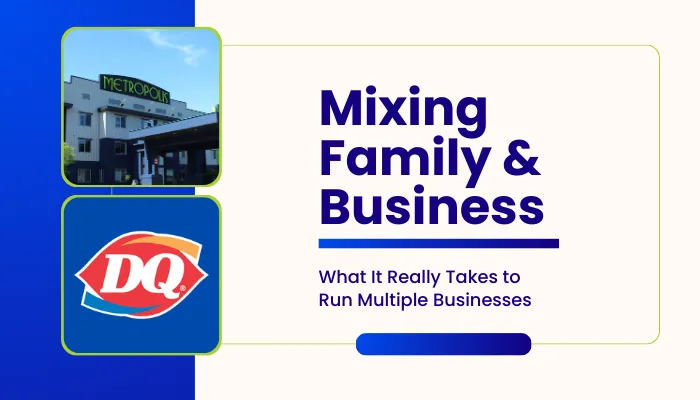
Reminiscing Through the Decades: Family, Holidays, and Business Evolution
A Trip Down Memory Lane
If there’s one thing that makes me nostalgic, it’s sitting around with family, sharing stories about our childhood holidays—and, of course, comparing how drastically running a small business has changed since those early days. In our latest episode, we did exactly that. Listening to Beth recount 1950s Fourth of July picnics, Kim’s New Year’s Eve stories at the lake cabin, or Tom’s tales of his first car wash venture, I realized just how much our celebrations and our work lives have evolved.
Holidays We Cherished: More Than Just a Calendar Date
Growing up, holidays were less about the commercialization you see today, and much more about community, family, and tradition. Beth transported us back to a time when the family house acted as a central meeting point—20 or 30 folks crammed in for Thanksgiving, fireworks on the Fourth, or impromptu water fights that occasionally tested Grandma’s patience. Those were the days when strangers, neighbors, or anybody “with no place to go” would find a seat at the table for Christmas dinner.
Kim remembered how Christmas Eve was “everybody in town”—with chili, oyster stew, and the annual staged “search for ice” that magically allowed Santa’s gifts to appear. As for New Year’s, it was more about the kids being dropped at a lake cabin with card games and ice skating while the adults had their fun in town.
Tom mentioned the necessity of splitting holidays between grandparents and the “tribes” of cousins that would gather. Compared to the packed schedules of today, these celebrations felt rooted in a sense of closeness and belonging that endures, no matter how times change.
When Business Was Done on a Handshake
One of the themes that really stood out was just how different running a business was, especially in the ‘50s, ‘60s, and ‘70s. Tom shared how he dove headfirst into managing a grocery store after his father died young—a challenge on its own, but made doable by the trust and simplicity that permeated small-town life back then.
Expanding the family business wasn’t a 40-page contract ordeal; it was a conversation over coffee, maybe a handwritten note, and a handshake. Beth and Tom reminisced about extending credit to customers by simply putting a slip next to the cash register, trusting folks to “pay next time.” You want to talk about risk? Imagine giving out counter checks—blank checks from the bank, no account number or ID required!
Even the banks would confirm funds for you over the phone. Try that today, and you’ll run up against privacy laws, security checks, and maybe even a few laughs.
Cash Registers, Garvey Guns, and Price Charts
The tools of the trade have perhaps changed the most. Beth remembered marking every item by hand with a Garvey ink stamper (and if you’re under 50, you probably have no idea what that is). Each price was manually keyed in at checkout—no barcode scanners, no automatic tax calculation. If a product was $1.29 and Iowa tax was 3%, you calculated it yourself or consulted a paper chart. And if you gave the wrong change, well, better hope the customer caught it!
I had to laugh when the topic moved to bad checks (NSF—Non-Sufficient Funds), the counter-checks, and how you could actually call the bank to confirm whether there was money in the account before cashing it. Today, that whole process would be unthinkable.
The ‘90s to Now: Staff, Tech, and Trust
Kim reflected on how much hiring has changed since the pre-Internet era. Back then, you’d put an ad in the paper and be inundated with applications—no LinkedIn searches, no social media posts. Policies were simpler, too; set a rule, and most teens followed it. Today, with tech at everyone’s fingertips and a different cultural mindset, staffing means more training, more explanation, and a lot more patience.
Credit card machines went from being a novelty (with dial-up connections!) to being the backbone of business—so much so that if they go down, your day screeches to a halt. Technological change has streamlined processes, yes, but it’s also introduced new headaches and dependencies.
Lessons, Laughter, and Looking Ahead
What struck me most as we talked is that the heart of family and business—trusting relationships, quick-thinking, adaptability—remains unchanged even as the world around us evolves. Sure, we have better tools now. But I’d argue the stories, the laughs about ink-stained fingers or forgotten Christmas ice, and the commitment to our communities are the threads tying generations together.
Thanks for sharing this journey with us. Whether you remember Paymasters and Garvey guns or you’ve only known POS systems and apps, your stories matter too. Drop us a comment or email if you have questions about the “ancient” business world—or your own tales to add to our family tapestry!
Make sure to listen to our full conversation here!
